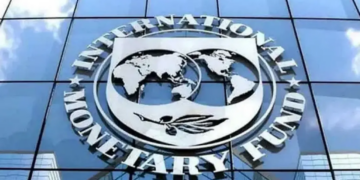Malaria, a life-threatening disease caused by parasites transmitted through the bites of infected mosquitoes, remains a significant health burden in Africa. It is a leading cause of death in Africa, especially for pregnant mothers and children under the age of five years.
According to the World Health Organization (WHO), Africa accounts for 94 percent of the world’s malaria cases, with Nigeria contributing more than 25 percent of the global malaria index. In Nigeria, malaria contributes significantly to maternal deaths and infant mortality. It is estimated that it accounts for approximately 11 percent of maternal deaths; about 30 percent of childhood deaths and 25 percent of deaths in children aged zero to five years.
Malaria in pregnancy can lead to acute anemia and low birth weight, with pregnant mothers, particularly those in first and second pregnancies more susceptible to malaria and its complications. This further increases the risk of maternal and infant mortality.
With the escalating social and economic challenges countries across the world are grappling with, coupled with significant dwindling aids coming to Africa from developed nations, the key take-away in the fight against malaria in Nigeria and Africa is the need for innovative local solutions.
Every year, on April 25, the global community comes together to commemorate the World Malaria Day (WMD) in an effort to stem the high prevalence of malaria around the world, in particular Africa and other low-income countries.
This year’s theme, “Malaria Ends With Us: Reinvest, Reimagine, Reignite,” emphasizes the need for collective action to eradicate malaria. The theme was chosen to highlight the importance of sustained investment, innovative solutions, and renewed commitment to malaria control.
Professor Wellington Oyibo, a medical parasitologist at the College of Medicine, University of Lagos, has described Nigeria’s malaria mortality rate as the highest in the world. “Over the past decade, more than 80,000 deaths have been recorded annually due to malaria,” he stated.
Despite this grim statistic, Professor Oyibo expressed hope about recent developments, particularly the introduction of malaria vaccines. “These vaccines could significantly reduce deaths. At least four in ten children will be protected from fatal outcomes, while six in ten will avoid severe forms of the disease,” he explained.
He underscored the importance of private-sector participation in the fight against malaria, drawing parallels with their role during the COVID-19 pandemic. “Just as the private sector was crucial in tackling COVID-19, they must now lend their support to malaria vaccine rollout. Our children’s lives depend on it,” he urged.
Supporting this call to action, a report by Malaria No More UK revealed the far-reaching economic benefits of eradicating malaria. The report estimates that if the UN’s goal of reducing malaria by 90 percent by 2030 is achieved, Africa’s GDP could increase by as much as $126.9 billion—translating to nearly $16 billion in annual economic gains.
Dr. Michael Charles, CEO of the RBM Partnership to End Malaria, also emphasized the urgent need for greater investment in malaria control. “Malaria is both preventable and treatable, yet it continues to cost lives and stall economic development. The lack of adequate funding remains a significant barrier to deploying effective interventions,” he noted.
Omolola Lana, Executive Director of the Westfield Development Initiative, pointed to environmental and socioeconomic factors that fuel the disease’s persistence. “Many Nigerians live in communities plagued by poor sanitation and stagnant water, which are ideal breeding grounds for mosquitoes,” she said.
Lana also highlighted the underutilization of long-lasting insecticidal nets (LLINs), despite their proven efficacy. “We launched a project to track the usage of LLINs among recipients. Within six months, we observed a significant reduction in malaria cases in those communities,” she reported, while advocating for more education campaigns to encourage widespread use of treated nets.
Meanwhile, the private sector is beginning to step up. Emzor Pharmaceutical Industries Limited, a prominent Nigerian pharmaceutical company, has taken a leading role in the country’s malaria response, further demonstrating the critical importance of industry support in eradicating the disease.
From a single product at inception to a growing portfolio of over WHO-recommended 20 antimalarial products, Emzor has been providing high-quality and global-standard malaria treatments that are affordable and accessible to millions of Nigerians and Africans.





